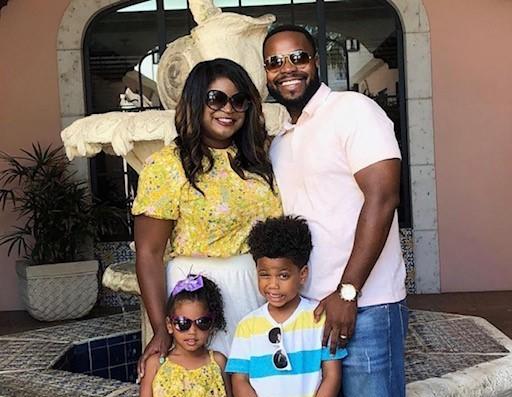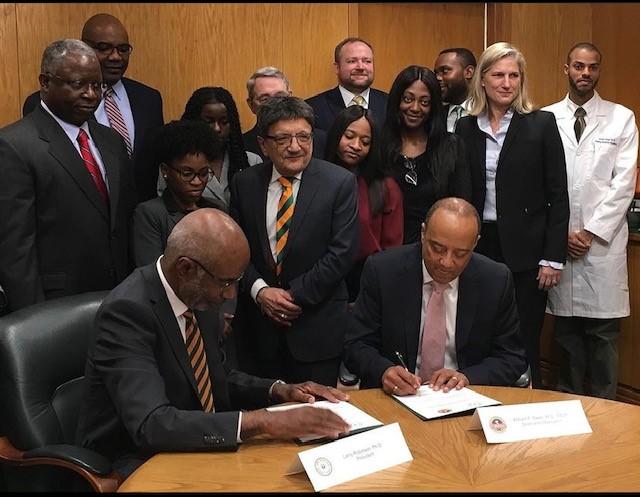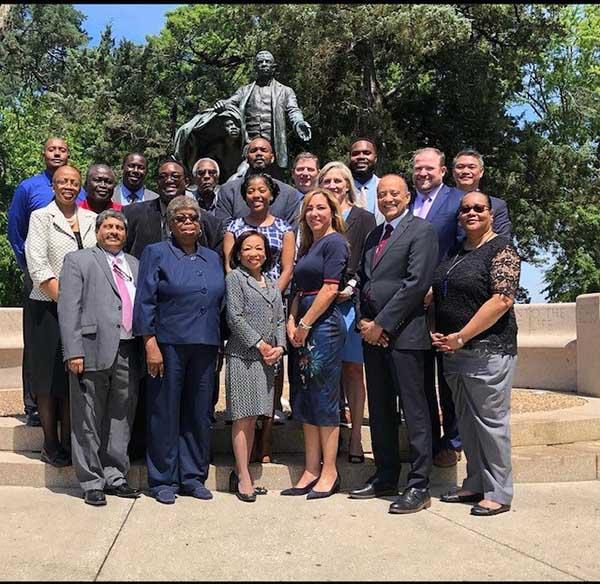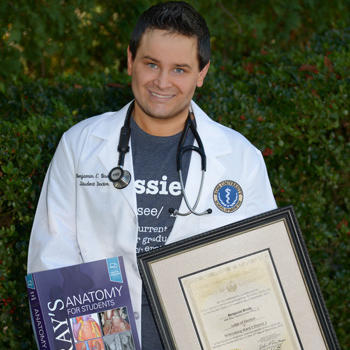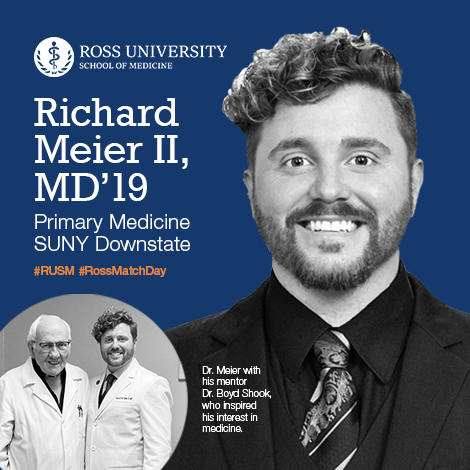Last year, Ross University School of Medicine (RUSM) outlined its Social Justice Commitments. We promised to educate ourselves and advocate for others and continue to advance our goal of creating a more inclusive RUSM environment free from racism, discrimination, prejudice, injustice, disparities and inequities. Hear how one colleague is making a difference by increasing access to medical education.
Understanding firsthand the importance and impact of higher education, RUSM colleague David Beliard, MS, joined the university to help provide underrepresented students with educational access. In 2018, the associate director of admissions–Historically Black Colleges and Universities (HBCUs) liaison developed a strategic plan to partner with HBCUs and Hispanic-Serving Institutions (HSIs). Within a few months, he secured the first business relationship that snowballed into today’s well-rounded program.
“When you’re driven and you know that what you’re doing is for the betterment of students and the university, there’s nothing that can stop you,” said the avid recruiter who began his RUSM tenure in the Office of Career Advisement (OCA). “In OCA, I learned to connect with students and understand the importance of proper experiences, personal statements and how it all contributes to residency placement rates. I saw that students from underrepresented communities struggled and I made it my goal to try and help them.”
Through HBCU and HSI partnerships, Beliard and the RUSM admissions team introduce students to the school and share information about its Access and Inclusion in Medicine (AIM) Scholars Program, which seeks to increase the number of students from diverse backgrounds who graduate to become successful physicians. AIM promotes equitable educational access for highly qualified Black and Latinx students while decreasing health disparities in the US.
Raising the Stats
According to 2018 data from the Association of American Medical Colleges and a January 2021 report from the American Medical Association, Hispanic and Black physicians account for only 5.8% and 5% of the physician workforce, respectively. While approximately 80% of all US medical schools graduate 10 or less Black physicians a year, RUSM graduates more Black physicians — both male and female — than any other US school at more than 80 graduates each year. “We want to raise the number of Black and Hispanic medical school applicants. When we can remove financial and social barriers, we give these students a chance they would not have otherwise been afforded. We are showing students that we’re investing in them and their success.”
Beliard grew up in a Miami community nicknamed ‘Little Haiti’ for the volume of Haitian immigrants who lived there including his family. “Many of them were just trying to survive and navigate America as an immigrant while providing their children with access to a better life,” Beliard said. He tells of his family’s sacrifice and support — his father working three blue-collar jobs for nearly 10 years before he could afford to move his family to the US, and his mother’s push for her sons to continue their academic journey despite her own access to a formal education.
High school opened Beliard’s eyes to several career opportunities, countering initial thoughts that Black men’s success path aligned only with sports or entertainment. “I never knew I could be a doctor or lawyer. I learned that a degree meant I could help my family and community.” After earning a degree in political science with an urban planning minor from Florida State University, Beliard served as an urban developer for the city of North Miami. But he yearned to give back in a different way — by helping dismantle systemic barriers and the provision of professional access; to showcase how education changed the trajectory of his life while encouraging others to follow suit.
“I never dreamed of going to college,” recalled the basketball superfan who enjoys attending sporting events with his family. “If it wasn’t for teachers who invested in me and a community college that gave me a foundation and access to a larger university and then to graduate school, I wouldn’t be where I am now. I want to be that gateway for our students. They are so full of gratitude with everything we provide them initially and then for the ongoing support. They tell me they wouldn’t have even considered medical school if they hadn’t been given this opportunity. For each student I talk with, I hear his or her struggle and I help them get here, which makes me feel like I helped someone follow their dream. That’s what drives me every day.”
Learn More
To learn more about our AIM Scholars program, please send an email. You can also listen to a recent AIM webinar hosted by RUSM and its affiliate school, the American University of the Caribbean School of Medicine.

